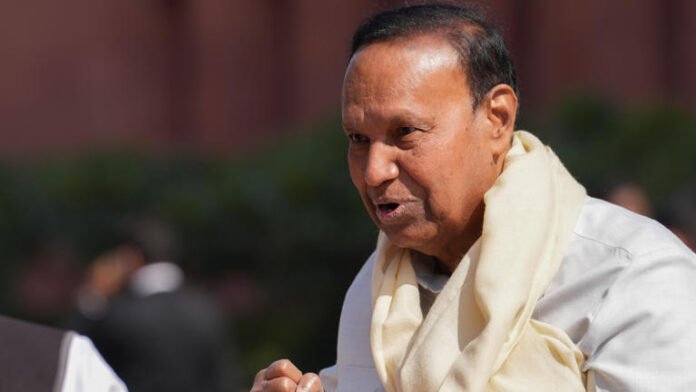The Lok Sabha recently witnessed heated exchanges between the Bharatiya Janata Party (BJP) and the Dravida Munnetra Kazhagam (DMK) over allegations of insulting Dalits. The controversy erupted when TR Baalu, a senior leader of the DMK, made remarks questioning the fitness of Minister of State for Information and Broadcasting, L Murugan, to hold office. Baalu’s comments sparked outrage among BJP members, who accused the DMK of disrespecting Dalits and engaging in caste-based politics. The incident underscores the deep-rooted tensions between political parties in India, particularly on issues related to caste and social justice.
The verbal altercation in the Lok Sabha began when TR Baalu criticized Murugan’s handling of certain issues during a discussion on the working of the Ministry of Information and Broadcasting. Baalu alleged that Murugan was “unfit to be a minister” and questioned his qualifications for the role. These remarks were met with vehement protests from BJP members, who accused Baalu of making derogatory remarks against Murugan, who hails from a Dalit community.
The BJP wasted no time in seizing upon Baalu’s comments to launch a scathing attack on the DMK, accusing the party of disrespecting Dalits and engaging in casteist politics. BJP leaders alleged that the DMK’s criticism of Murugan was motivated by caste prejudice and sought to tarnish the reputation of a Dalit leader holding a ministerial position. The BJP’s response to Baalu’s remarks reflects the party’s strategy of projecting itself as a champion of Dalit rights and social justice, particularly in states like Tamil Nadu where Dalit communities wield significant political influence.
However, the DMK swiftly refuted the BJP’s accusations, asserting that its criticism of Murugan was based on his performance as a minister and not his caste identity. DMK leaders argued that Murugan’s tenure as Minister of State for Information and Broadcasting had been marked by controversy and alleged mismanagement, warranting scrutiny and criticism from the opposition. They maintained that their remarks were directed at Murugan as an individual and did not reflect any bias against his caste background.
The verbal sparring between the BJP and DMK underscores the complex dynamics of Indian politics, where issues of caste and identity often intersect with broader political agendas. The BJP’s attempts to portray itself as a defender of Dalit rights reflect its broader strategy of expanding its electoral base among marginalized communities while also appealing to its core Hindu nationalist constituency. Conversely, the DMK’s criticism of Murugan reflects its role as an opposition party tasked with holding the government accountable for its actions.
Beyond the immediate political ramifications, the incident highlights the challenges of addressing caste-based discrimination and inequality in Indian society. Despite significant progress in advancing the rights of Dalits and other marginalized communities, caste prejudice and discrimination continue to persist in various forms, including in the political arena. The incident serves as a reminder of the need for greater awareness and sensitivity to caste issues and the importance of fostering an inclusive and equitable society.
Moving forward, it is essential for political parties to engage in constructive dialogue and debate on issues of public importance while avoiding the use of caste-based rhetoric and identity politics. By focusing on substantive issues and policy matters, parties can contribute to the advancement of social justice and equality, rather than perpetuating divisions based on caste and identity. Ultimately, the goal should be to build a society where every individual, regardless of their background, has equal opportunities and rights.
In addition, the confrontation between the BJP and DMK in the Lok Sabha over allegations of insulting Dalits highlights the complex interplay of caste, identity, and politics in India. While political parties may differ in their approaches and ideologies, it is imperative for them to prioritize the interests of all citizens and work towards creating a more inclusive and equitable society. Only through concerted efforts to address caste-based discrimination and promote social justice can India realize its full potential as a vibrant and thriving democracy.

